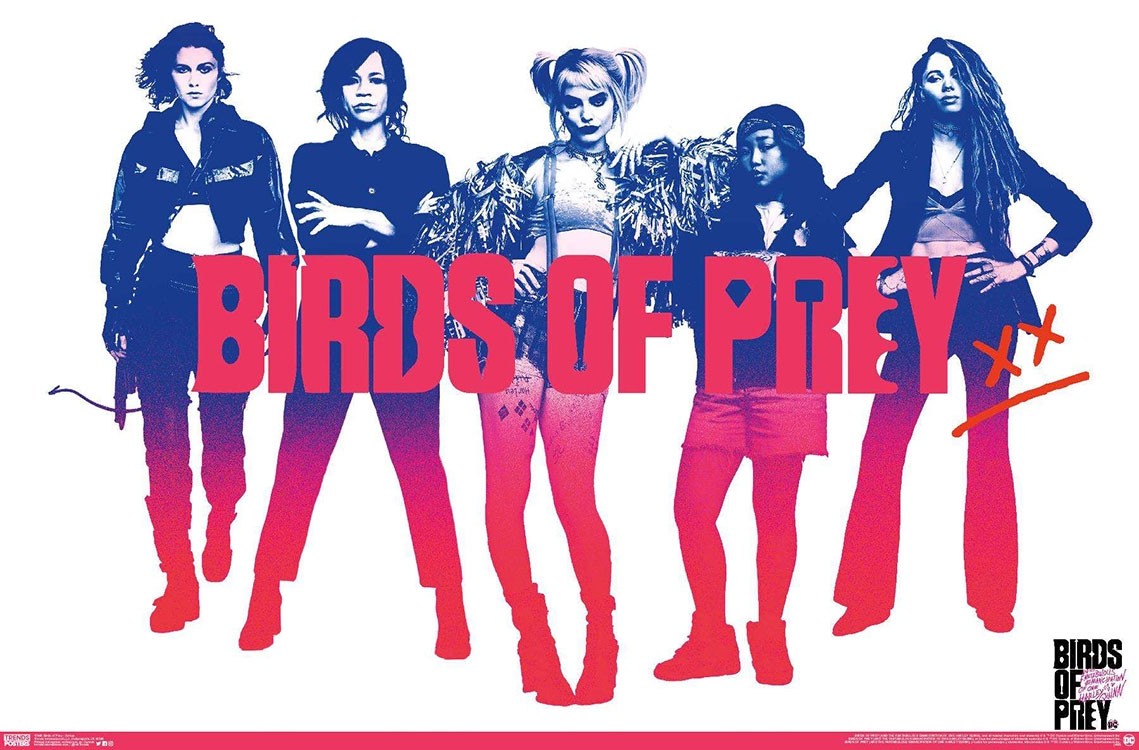In Birds of Prey: And the Fantabulous Emancipation of One Harley Quinn, Harley gets out of an abusive relationship with male directors and producers as much as with the Joker.
The trailers for Birds of Prey promised an unlikely, quick-witted girl gang, fun fight scenes, and a reinvention for Harley, who last appeared in 2016’s much-lambasted Suicide Squad. Suicide Squad was directed by David Ayer, whose illustrious pedigree also includes Netflix’s 2017 racial-allegory-gone-wrong Bright, and his Harley is objectified, infantilized, and dumbed-down. A security guard calls Harley “a whole lot of pretty in a whole lot of crazy,” and Suicide Squad doesn’t seem to see her as much more than that.
Her story in Suicide Squad focuses on her relationship with the Joker as she tries to escape indentured servitude to the American military to return to him. Throughout the movie, Harley walks around in what is otherwise a hyper-masculine military power fantasy with both butt cheeks out in four-inch heels, complete with a lingering pan up her mostly-naked body as she changes out of her prison uniform.
This is all unsurprising for a movie that originated the “Daddy’s Lil Monster” shirt and “Property of Joker” jacket being marketed to teenage girls in every Hot Topic in North America. Eventually, she does choose to save the world rather than bring Joker back from the (presumed) dead, but then he breaks her out of prison and she runs away with him anyway — and this is framed as a happy ending, despite how manipulative and cruel the Joker is to her. But, as a character in the DC universe, Harley wasn’t originally intended to humanize the Joker or show him in a happy relationship; she was invented to show how twisted and awful he was. This is something Suicide Squad is oblivious to, and something Birds of Prey knows intimately.
Birds of Prey is about what happens to Harley Quinn after she breaks up with the Joker. Without his protection, she is alone and under attack from everyone she ever wronged at his side, including flamboyant crime boss Roman Sionis (Ewan McGregor). She agrees to find a diamond he wants in exchange for her life, only to find out that it’s been swallowed by teen pickpocket Cassandra Cain (Ella Jay Basco).
Harley tries to protect the kid, and the pair are joined by three other women who want to see Sionis fall: hardboiled cop Renee Montoya (Rosie Perez), Sionis’ lounge-singer-turned-reluctant-driver Dinah Lance (Jurnee Smollett-Bell), and orphaned assassin Helena Bertinelli, aka Huntress (Mary Elizabeth Winstead). Margot Robbie herself is one of the film’s producers; it was written by Christina Hodson, and directed by Cathy Yan. As other reviews have noted, it’s a movie by and about women — and it makes a difference.
Birds of Prey takes an interest in Harley as a character and shows us not just what she thinks she wants, but how she feels about wanting it. A lot of the story is told through the disruption of slice-of-life scenes — Harley going out for drinks with friends or buying an egg sandwich at her favourite corner store, for example — that show the audience Harley as a person, rather than just the Joker’s crazy girlfriend.
In fact, all five of the principle characters all feel fully-realized and completely distinct which is, frankly, shocking for a movie starring all women. It is an ensemble flick, so that’s not to say that no-one would benefit from some more character development — I would love to see more of Montoya and Huntress — but every one of them has a complete arc, and their decision to join up with Harley and Cass feels natural. This is because, even though all of their arcs are different, they all relate to power in a way that the character arcs in Suicide Squad didn’t, especially Harley’s. Rather than a bunch of villains all learning to be a smidge less selfish, Birds of Prey sets up personal needs and motivations for each character, and unites them under a common goal: getting rid of Sionis.
Harley, who starts out alone and vulnerable, builds up both herself and her teammates so they can fight together. Cass, a foster kid in an unsafe home, leaves the system and pursues a career (granted, that career is crime) with a trusted mentor. Montoya leaves the police force that consistently undervalues her, Dinah leaves her abusive employer, and Huntress gets revenge against the man who traumatized her as a child.
Birds of Prey isn’t a movie just for women — its stylized fight scenes, punchy humour, and colourful villains make it a great action movie for any audience. But, it is a movie informed by womanhood, and that makes it emotionally rich and relatable, as well as fun. The emancipation of Harley Quinn from male filmmakers is truly fantabulous.


